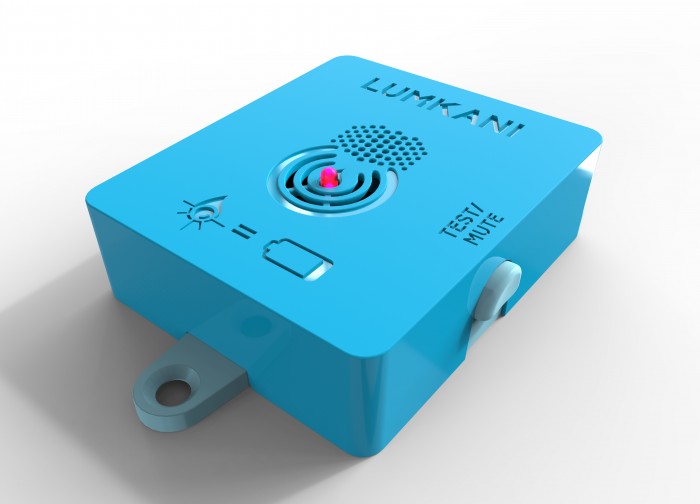
Lumkani, a low-cost fire detector that we featured in June, has taken a giant leap closer to market roll-out as the winner in the “comfortable home” category of the Better Living Challenge. It is one of three innovative designs, all of which address the daily challenges of living in South Africa’s townships and informal settlements, to receive support services valued at R500 000 that will enable them to upscale and take their solutions to market.
The winners of the Better Living Challenge – a competition showcasing sustainable and affordable solutions to improve quality of life in low-income communities – were announced last night. See our previous coverage of the competition here.
The competition was spearheaded by the Western Cape Government – in particular, its 110% Green initiative and the Department of Economic Development and Tourism – and project-managed by the Cape Craft + Design Institute (CCDI) on their behalf. As Alan Winde, Western Cape Minister of Economic Opportunities, put it, the awards played “a pivotal role” in acknowledging “those who have committed their careers to push for sustainable development and economic growth in our province”.
The winners are:
In the Structural Home category - USE-IT's Compressed Earth Blocks (CEBs) Construction
An innovative process that uses a 30% blend of builder’s waste rubble and available clay-bearing soils in the manufacture of USE-IT's Compressed Earth Blocks (CEBs). Building sustainable homes with the lowest carbon footprint, CEBs are three to five times stronger than concrete blocks, cheaper, 10 times more thermally efficient and environmentally friendly.
In the Comfortable Home category - Lumkani
Lumkani is a low-cost fire detector and alert system designed for low-income households. In the event of fire, the system not only alerts the inhabitants where the fire has started, it uses transmission mechanisms to trigger neighbouring devices within the system up to 100 metres from the source of the fire. Lumkani can also provide the nearest fire station with the GPS location of the fire, allowing for proactive early response. Read our feature on Lumkani.
In the Connected Home category - Cityspec
This open-source mobile inspection tool helps civil society organisations and community workers to monitor and administer basic service delivery in informal settlements. This mobile app allows community workers to log reports in the field, take photos and capture GPS data automatically.
Two student awards were also made: Brigado, a brick-making kit designed by Tshwane University of Technology student Rotenda Gene Nevhutalu, and Embracing Informality, an architectural development plan submitted by Lawden Holmes from the University of Cape Town. Both these awards were made in the Structural Home Category and each received a R40 000 cash prize.
The competition was oriented towards finding solutions that could be taken to market, but other criteria such as sustainability and user research also played a role.
Support services for the winners will vary depending on the product’s stage of development, and will include coaching, legal and IP consultations, engineering and prototyping assistance, and links with retailers.
Although the Better Living Challenge was specifically aimed at finding solutions to the needs of lower LSM groups, the award-winning innovations have application across various communities.






